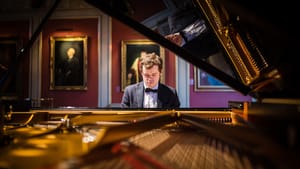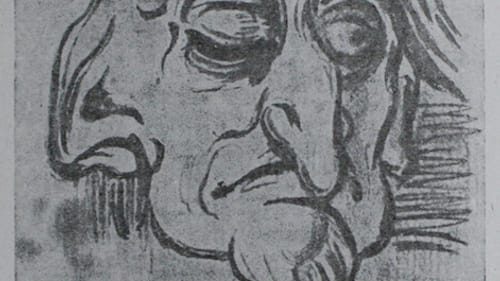Stay in the Loop
BSR publishes on a weekly schedule, with an email newsletter every Wednesday and Thursday morning. There’s no paywall, and subscribing is always free.
Conquering 'Gaspard'
PCMS presents pianist Benjamin Grosvenor

Maurice Ravel’s Gaspard de la nuit (1908) brings a challenge that strikes fear in the hearts of pianists the world over. Fast-rising British pianist Benjamin Grosvenor took on that challenge in his local debut: a solo recital for Philadelphia Chamber Music Society.
In chronicling his experience of learning Ravel’s piece, Scottish musician Steven Osborne expressed his vexation with the opening movement, Ondine: “I feel I’ve tried every possible fingering and nothing works. In desperation, I divide the notes of the first bar between my two hands rather than playing them with just one, and suddenly I see a way forward. But now I need a third hand for the melody.”
A young master at play
Maybe Osborne should ask Grosvenor — who made absolute child’s play of the fiendish composition — for tips. Dispatching the three-movement suite with intelligence and vigor, Grosvenor performed the Ravel as his closing selection, capping a wide-ranging and inventive program that announced the 25-year-old as one to watch.
Like his countryman and contemporary Claude Debussy (also represented on Grosvenor’s program, in Leonard Borwick’s arrangement of “Prélude à L’après-midi d’un faune”), Ravel took his inspiration for Gaspard from poetry. Each movement represents a section from a fairytale epic by Aloysius Bertrand (1807-1841).
The opening, Ondine, tells the story of a water sprite who lures men to their destruction with her alluring, sensual voice. Le Gibet, the middle movement, creates a soundscape from the image of a dead man hanging from a gibbet. The concluding Scarbo imagines a gnomish lord of misrule who wreaks havoc for sport.
Grosvenor kept the tension rising across the movements, building to an astonishing climax in Scarbo. He displayed extraordinary control throughout Ondine. In the past, I have seen pianists contort their bodies for dramatic effect while playing this finger-breaking music, as if they must physically manifest its difficulty. Grosvenor displayed no such tendency. He let his hands to all the work, and the result was a shimmering, playful interpretation that evoked the title sprite’s seductive, dangerous nature. If Ondine herself sounded as good as Grosvenor, I wouldn’t blame the men who found themselves lured.

A B-flat ostinato pervasively repeats throughout Le Gibet, representing the ever-present specter of death. Grosvenor made the note sound simultaneously remote and all-encompassing. His deliberately slow tempo added to the score’s already-haunted quality, calling to mind my personal favorite recording of Gaspard, by Martha Argerich.
This foreboding atmosphere carried over seamlessly into Scarbo; by the end of the nine-minute movement, Grosvenor’s jagged jabs at the keyboard had my heart skipping beats in my ears. Who knew Ravel could still provoke a level of terror akin to a slasher flick?
Popcorn and paté
The remaining program selections seemed simple in comparison, although Grosvenor played them all with great musicality. As a devotee of the Second Viennese School, I delighted in his reading of Berg’s Piano Sonata, Op. 1 (1908), which balanced the work’s Romantic underpinnings and its forward glances toward Modernism and Expressionism. And I admired the pianist’s unbroken composure when Debussy battled an errant cellphone.
My only complaint is that the opening Bach selections, though played beautifully, added little new insight to this deeply familiar music. It felt a little bit like popcorn on a menu of pâté and caviar.
But why dwell on that? Grosvenor’s Philadelphia debut was an evening to remember. No doubt remains that this former child prodigy has joined the first rank of artists on the international concert stage. I cannot wait for him to return.
What, When, Where
Benjamin Grosvenor. Benjamin Grosvenor, piano. Johann Sebastian Bach, French Suite in G Major, BWV 816; Johannes Brahms/Brett Dean, Four Pieces, Op. 119, interspersed with Hommage à Brahms; Claude Debussy, Prélude à l’après-midi d’un faune; Alban Berg, Piano Sonata, Op. 1; Maurice Ravel, Gaspard de la nuit. Philadelphia Chamber Music Society. November 10, 2017, at the Kimmel Center’s Perelman Hall, 300 S. Broad Street, Philadelphia. (215) 569-8080 or pcmsconcerts.org.
Sign up for our newsletter
All of the week's new articles, all in one place. Sign up for the free weekly BSR newsletters, and don't miss a conversation.
 Cameron Kelsall
Cameron Kelsall